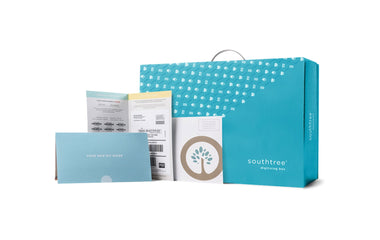Trying to understand the complexity of the human brain during conscious activity is difficult enough. Trying to describe the intricate workings of the brain during a dream is a whole other beast that has kept scientists busy for centuries.
We’ve all had dreams. Ones where you’re teeth fall out, you’re naked in public, free falling, can’t run to save your life, experiencing flashbacks – you name it, you’ve probably dreamt it. But why do we have dreams in the first place and what do they mean, if anything?
Well wake up, because here’s the dish on dreams.
Defining dreams
Put simply, if you can say there’s anything simple about a dream, dreams are stories that our brains concoct during our unconsciousness. While the body may rest, our minds never take a load off. From dreams that are freakishly real to ones that are incredibly out there, they all bring with them a wave of emotion, be it happy, sad, scary, or somewhere in between. The subconscious is a mysterious thing.
What goes on up there during a dream
Research has shown that some of the most vivid dreams are those our mind creates during rapid eye movement, better known as REM sleep. It’s part of stages three and four of sleep, which basically means it’s among the deepest sleep we encounter during slumber. During REM, your brain is at its most active state, which is why your dreams during this stage of sleep are more memorable than those when you’re in and out of sleep. It can be mere seconds after your head hits the pillow and your eyes shut before you start drifting off to dreamland, and whether you remember your dreams or not, the truth of the matter is we all dream – every single night. In fact, the average person can have up to six or more dreams in just one sleep induced night. Talk about your brain collecting overtime!
Interpreting your dreams
Okay, so now that we know we all dream. We’re still left with the biggest question of all – what do they mean?
Well, you’re probably not going to like the answer, but the jury is still out on that one. There’s compelling evidence on both sides of the fence, from researchers saying they have no real purpose to others that theorize they hold our deepest mental, emotional, even physical wellbeing. The latter option makes sense when you think about times your anxious, for example studying for a big test, preparing for a sales pitch, packing for vacation, etc. In times of anxiousness, our brains have a way of self-preservation (aka keeping sane) by using dreams to alleviate tension, anxiety and depression-like symptoms. It’s also easy to side with the non-dream believers simply based on the intangible absurdity that our dreams can create.
Here’s what we do know about dreams. Cycles of deep REM can benefit our concentration and memory retention, which is why it’s important to get adequate rest before a big test. Adequate sleep and dreaming can also aid in physical attributes like coordination and weight management, so catching some extra Zzz’s can help you drop some unwanted lbs.
Then again, there’s the Sigmund Freud theory of thought that our dreams are gateways to our deepest desires and innermost motivations. Who knows, maybe dreams really are when you subconsciously think one thing but mean your mother …
Whatever train of thought you choose to believe about dreams, one thing is certain, even during rest our minds are constantly chugging along trying to differentiate between memorable and forgettable information. Whether dreaming is tied to this is uncertain, and it may never be truly known. That level of physiological and psychological uncertainty is what makes dreaming such a fascinating subject to study.
And even if we can’t always remember our dreams, we can capture our memories so that we can always remember them. Which is why now is more important than ever to preserve those memories by getting your old film and photos digitized. We may not know the answers to our mind’s subconscious, but we can make a conscious effort to preserve the past!













